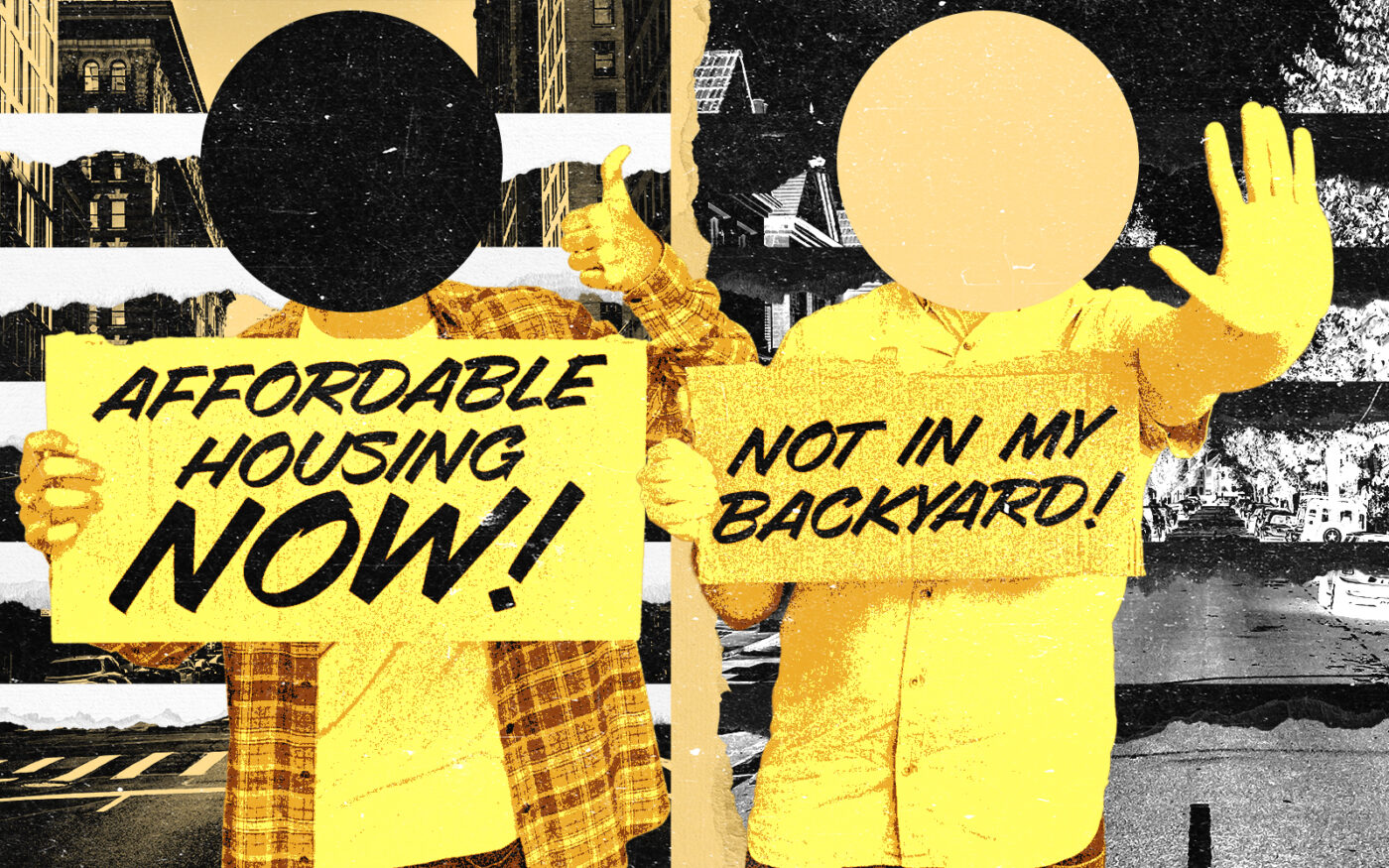A poll conducted for the Connecticut Mirror, a nonprofit publication covering Connecticut, asked voters how they would feel about a state policy requiring Connecticut cities and towns to create zoning for affordable housing.
Nearly three-quarters of Democratic voters supported the idea, while two-thirds of Republican voters opposed it.
My initial reaction was that ideology largely explains the partisan discrepancy, but it quickly occurred to me that geography also plays a large role. So does age and income, it turns out.
Suburbanites are more likely than city dwellers to dislike the idea of being forced to accept some affordable housing in their communities. And people who live in the suburbs are more likely to be Republicans. It could be that place matters more than party.
One reason people live in the suburbs is to separate themselves from poverty, although they tend not to say that explicitly. Instead they cite a desire to live in a “safe neighborhood” with “good schools.” (Crime rates and test scores are correlated with income.) They might well see affordable housing as a threat to those two things.
Suburban Republicans aren’t alone in this belief. It’s common for suburban Democrats to feel that way. They are less supportive than their urban counterparts of being forced to zone for affordability.
Indeed, the poll found more support for the idea in New Haven and Hartford than in the wealthier Fairfield area. Support for affordability was also stronger among people 18 to 24 years old and among sub-$100,000 earners.
Despite the partisan divide, supporters of multifamily housing can take some solace in the poll’s finding that 51 percent of Connecticut voters overall liked the idea of making localities zone for affordability.
But polls always show a majority of people endorse housing development when it is hypothetical and regional. The real problem is when an actual project or upzoning is proposed in their neighborhood.
That’s when the locals get out their pitchforks, while the potential beneficiaries — spread across the region and lacking a personal stake in the proposal — don’t get involved.
Pro-housing groups have gained momentum in Connecticut in recent years. The CT Mirror poll gives them some hope, and a better idea of the obstacles facing them.
Read more



It is telling that one such group, Partnership for Strong Communities, lists on its website a goal to “ensure a variety of housing types in all communities, so Connecticut residents can choose where and how they live,” but does not mention the mandate pitched by the poll.
Instead, the group merely wants localities to “require towns to complete basic reporting on land use decisions.” A bill to do that was signed into law in June.
File that under “gotta start somewhere.”
